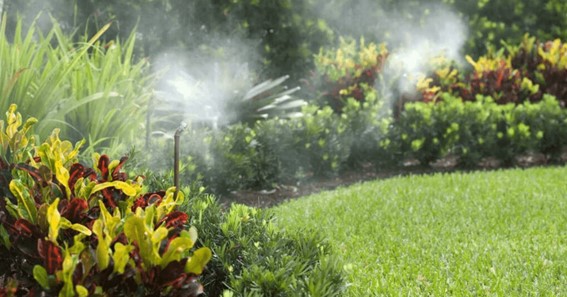It’s that time of year again. Mosquito season is here. It’s still a little early, but the weather has been pretty humid. So if you have a mosquito misting system, say a premium mosquito misting system from Mosquito Authority in your yard, make sure it’s working correctly before your summer barbecues and parties begin. Each type of mosquito misting system requires slightly different maintenance. Therefore, you should know your type of system to perform maintenance properly. Regardless, here are some standard maintenance methods for most mosquito misting systems.
- Prepare For The Season
The first thing you should do is make sure you have everything you need. Since your system should last the entire mosquito season (roughly April through October), you should have enough insecticide for that time. Store it in a cool, dry place, such as a closet or garage, away from direct sunlight.
Also, make sure you have the correct size nozzle. The most common sizes are 3/16″ and 1/4″, although 1/8″ models are available in some cases. Install these nozzles properly, so they do not leak or wear out over time, and see if you can replace them with other types of nozzles if needed; for example: instead of an insecticide nozzle, you might consider a fertilizer nozzle at certain times of the year.
- Keep The System Clean
A mosquito misting system is an effective method of keeping mosquitoes away. Thanks to them, you can enjoy the outdoors without being swarmed by pests during the summer. You should take proper care of your mosquito misting system to ensure optimal performance. Regularly clean your system’s tanks, pumps, and filters to avoid clogging. In addition, you should periodically sanitize components that come in contact with water, such as tank walls and reservoir bottoms. It will prevent bacteria from growing inside your unit during the long winter months when you aren’t using it as much.
- Replace Old Or Ineffective Nozzles
The nozzles are an essential part of the system. Therefore, you should always have them in good condition. Replace them frequently depending on their type, water quality, and hardness. Remember that hard water will clog the nozzles faster than soft water. So if you have hard water in your area, you should check the nozzles more often.
You can determine if your nozzle is working correctly by observing it during operation. A steady stream of mist indicates your nozzle perfectly. However, if your nozzle’s stream doesn’t go where it is supposed to, you should replace it;
- Put the cap back into place on that section’s feed line; this prevents the mosquito-killing liquid from spraying out during replacement.
- Disconnect one end of the supply line from the port it was connected to (either an inline tee or another nozzle)/ Then, tie a knot at that end of the supply line to prevent anything from leaking. It’s essential in preventing leaks from contaminating other parts of your system).
After that, repeat this step for the side of the supply line you hadn’t connected in step 1; (again, knotting each end will help prevent leaking between steps).
- Repeat these steps until you have replaced all old or ineffective nozzles with new ones.
- Replace The Motor Or Pump If It Fails
The failure of a pump or motor is a serious matter. When either component fails, you need to replace it as soon as possible. Unfortunately, even the best pumps and motors on the market will eventually fail – it just depends on how long they last and how much maintenance you do on them.
You can not fix a failed motor or pump; you can only replace it with a new unit. At this point, it’s essential to plan, budget for the cost, and buy high-quality equipment from the start. Replacing a pump or motor may cost several hundred dollars, but that’s still cheaper than buying a completely new system when your current one becomes unusable.
- Regularly Check For Leaking Horses
Leaky tubes can be a nightmare, and it is frighteningly common for them to go unnoticed. If moisture goes undetected during mosquito season, you risk losing significant amounts of product before realizing something is wrong. For this reason, regular inspections are critical. Even if your system is running smoothly, you should check it about once a week and ensure everything is in order.
The best way to do this is to use a flashlight to examine all the hoses and ensure they are not wet. While you are at it, look for holes or clogs caused by pests – an infestation can occur anywhere on your property under the right conditions, such as standing water, so be thorough.







